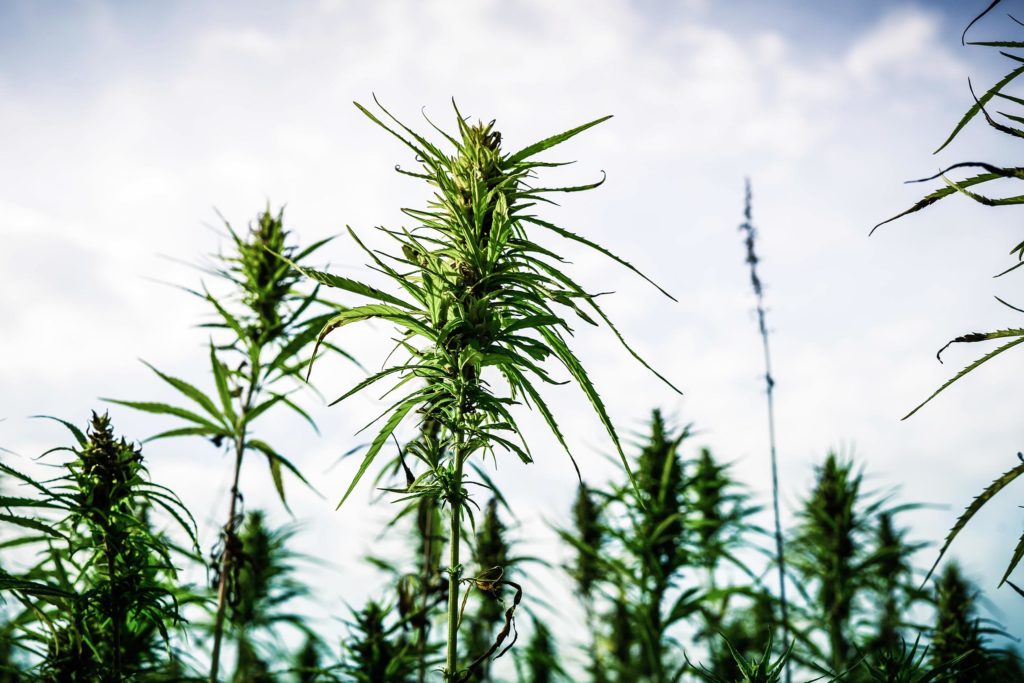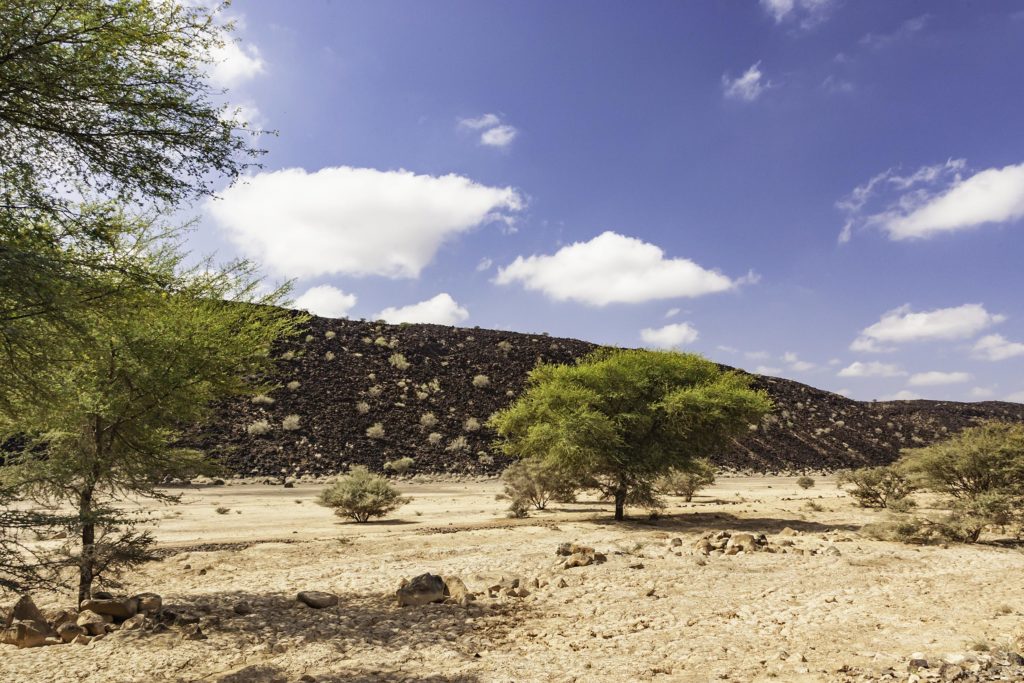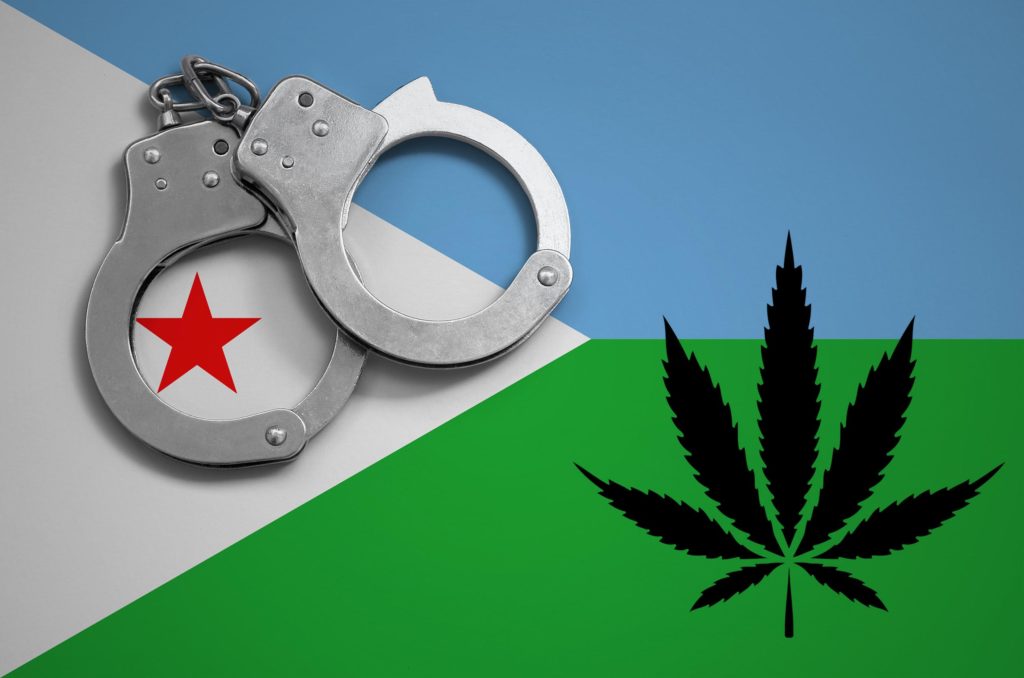Djibouti’s cannabis laws are harsh, with prison sentences in place for use, sale and cultivation of the plant. The country has particularly arid conditions, which makes cannabis farming tricky, but Djibouti’s people have a greater preoccupation – khat. This stimulant is still legal in the country, and locals spend as much as 40% of their income on it.
- Capital
- Djibouti
- Population
- 1,069,000
- CBD Products
- Illegal
- Recreational cannabis
- Illegal
- Medicinal cannabis
- Illegal
- Cannabis laws in Djibouti
- Can you possess and use cannabis in Djibouti?
- Can you sell cannabis in Djibouti?
- Can you grow cannabis in Djibouti?
- Is CBD legal in Djibouti?
- Can cannabis seeds be sent to Djibouti?
- Medicinal cannabis in Djibouti
- Industrial hemp in Djibouti
- Good to know
- Cannabis history
- Attitudes towards cannabis
- Will it be legalised in the future?
Cannabis laws in Djibouti
Can you possess and use cannabis in Djibouti?
It’s illegal to use or possess cannabis in Djibouti. If caught, the offender can receive up to five years in prison, and a fine. The country’s legal system is slightly complex in that it follows both Sharia and constitutional law, and as such, any form of intoxication is frowned upon – though this is more specifically aimed at alcohol.
Under Sharia law, cannabis is categorised as ‘mukhaddirat’. This word refers to a substance that makes the user lazy or slow, and which numbs the senses. However, the law regards medicinal use of cannabis as justifiable, if it is absolutely necessary.
Unlike many other African nations, cannabis consumption is not a major issue in Djibouti. Instead, many people use khat, a stimulant that offers similar effects to amphetamines. It’s legal to use (though increasingly frowned upon), and it’s estimated that 40% of the average Djibouti household budget is spent on it, which is especially problematic in a country where 16% of people live below the international poverty line.
Can you sell cannabis in Djibouti?
The sale and supply of cannabis in Djibouti are regarded as a much more serious offence, with offenders being given life imprisonment if caught.
The law is strict for those that are caught trafficking, but lack of funding means that the authorities struggle to enforce it. However, arrests are occasionally made, particularly in the country’s capital.
Although the country doesn’t have a strong domestic cannabis market, it’s a transit country. This means that drug traffickers use it as a route to smuggle substances to other locations. Situated on the Horn of Africa, its port is used to traffic cannabis and other drugs through the country.
Indeed, Djibouti is situated on one of the world’s busiest shipping routes. This route links the Red Sea and the Indian Ocean with the Mediterranean, via the Suez Canal. Cannabis is smuggled in, along with heroin, methaqualone and other drugs. These come overland from India and Pakistan, through Middle-Eastern countries like Syria and Lebanon, before passing through Djibouti to the rest of Africa.
Djibouti is also the main source for drugs and arms sent to the Islamic state of Yemen (and then sometimes transported from there to Saudi Arabia).
Can you grow cannabis in Djibouti?
It’s illegal to grow cannabis in Djibouti, and even if farmers wanted to cultivate it, it would be hard to do so successfully. The arid terrain deters the growing any sort of crops and cannabis is not a priority for the farmers there. Small-scale production may occur, but there’s little evidence to prove that even this is the case.
Instead, farmers tend to focus on growing khat, which is legal and popular with Djibouti’s people. It’s a lucrative market for an otherwise impoverished country – and is its largest informal economic sector. Growing and selling khat accounts for 4% of Djibouti’s total GDP.
Is CBD legal in Djibouti?
Djibouti’s law makes no distinction between cannabis and CBD, despite the fact that the latter doesn’t contain enough THC to produce a ‘high’. As such, CBD is illegal to use, purchase and sell in the country.

Can cannabis seeds be sent to Djibouti?
Likewise, the law doesn’t distinguish the seeds from any other part of the cannabis plant, which means they’re illegal to use, sell or buy. They cannot be mailed into the country either.
Medicinal cannabis in Djibouti
Djibouti’s law forbids the use of cannabis for all purposes, including for medicinal benefit. Although some other African nations have legalised medicinal cannabis use and cultivation, Djibouti has yet to do so, and its government have not indicated that the law will change any time in the future.
Industrial hemp in Djibouti
Djibouti has no hemp industry. This is unsurprising, given that much of the land is too arid for crop growth, and what terrain is available is given over to well-established plants, such as khat.

Good to know
If you are travelling to Djibouti (or currently live there), you may be interested to know the following:
- Djibouti has one of the driest terrains in the world, making it largely unsuitable for crops like cannabis. In fact, it’s only one of 16 countries on the planet that’s covered in less than 1% of forest.
- Hashish can be found in Djibouti, but it’s usually of an inferior quality. This could be due to the fact that there isn’t much of a market for it there.

Cannabis history
Experts believe that cannabis entered the African continent at some point around the 14th century. This is based on an archaeological dig in Ethiopia, which uncovered some smoking-pipe bowls, containing traces of the plant.
Ethiopia shares a border with Djibouti, so it’s probable that the use of cannabis would have spread from one country to the other. Although there’s no hard evidence to explain how the plant became so prevalent across the continent, historians are fairly sure that it was due to the nomadic Bantu-speaking tribes, who took it with them as they moved from place to place.
Given that Djibouti is one of the most arid countries on the planet, it’s unlikely that cannabis ever thrived there. However, it’s believed that Djibouti has been used as a transit point for hashish smuggling for quite some time.
For example, in 1915, the French sailor and author Henry de Monfreid described purchasing hashish from Greek Peloponnesian farmers, which he then legally shipped to Djibouti via Marseille. From Djibouti, the hashish was smuggled to Egypt. In 1923, another of de Monfreid’s ships (carrying ten tonnes of Indian hashish) was detained en route to Djibouti, before being allowed to continue on its journey.
After the country gained its independence from France in 1977, the Corsican mafia infiltrated the higher levels of the Djiboutian government, establishing a ‘mafia state’ in which trafficking weapons, drugs and humans played a central role. In 1999, President Ismail Omar Guelleh took steps to reduce corruption, which has led to a diminishing of the mafia’s influence in the country.

Attitudes towards cannabis
As an Islamic society, Djibouti has, like many Muslim nations, a complicated relationship with substances like cannabis. Many Islamic cultures have deep cultural ties with cannabis (particularly hashish). While this isn’t the case in Djibouti, Sharia law is vague when it comes to ‘intoxicants’, which means that perhaps cannabis isn’t as frowned upon as alcohol, for example.
Since it isn’t widely used in the country, it isn’t an issue for many Djiboutians.
Will it be legalised in the future?
Given that cannabis use isn’t common in Djibouti, there’s no real pressure for the country’s government to change the law. However, with other African nations choosing to legalise cannabis for medicinal purposes, there may be a chance that Djibouti chooses to do the same in the future.
As of yet, the government has made no indication that this will be the case.
- Disclaimer:While every effort has been made to ensure the accuracy of this article, it is not intended to provide legal advice, as individual situations will differ and should be discussed with an expert and/or lawyer.









